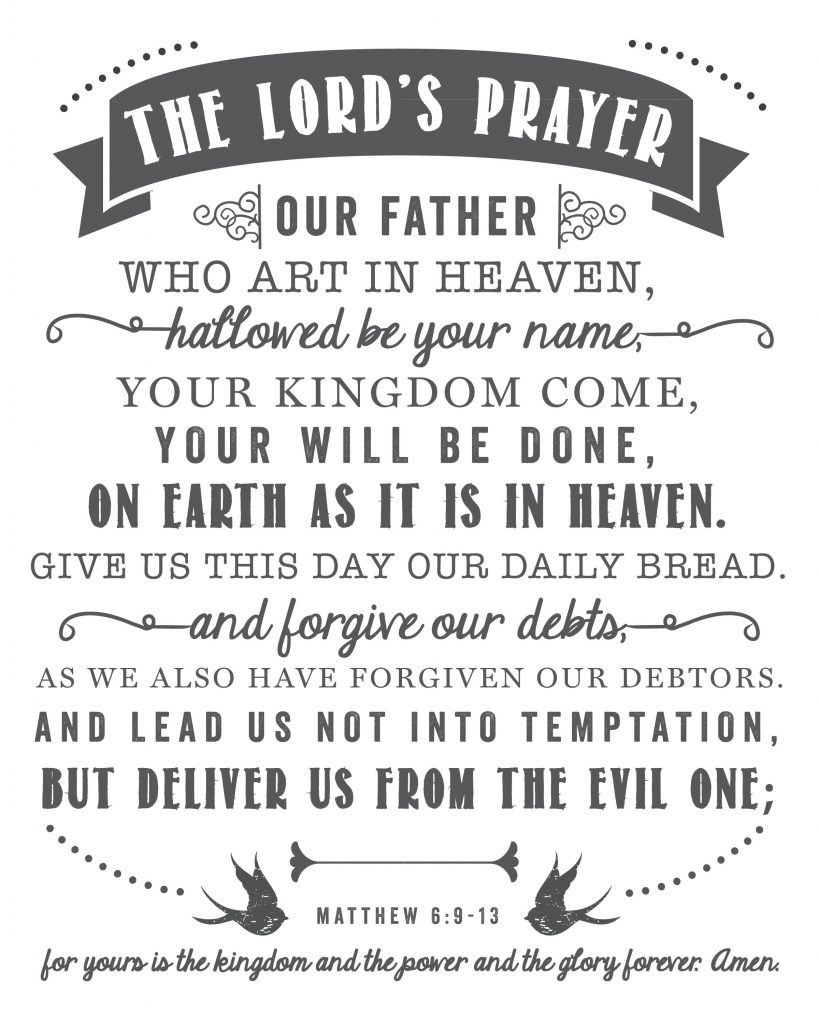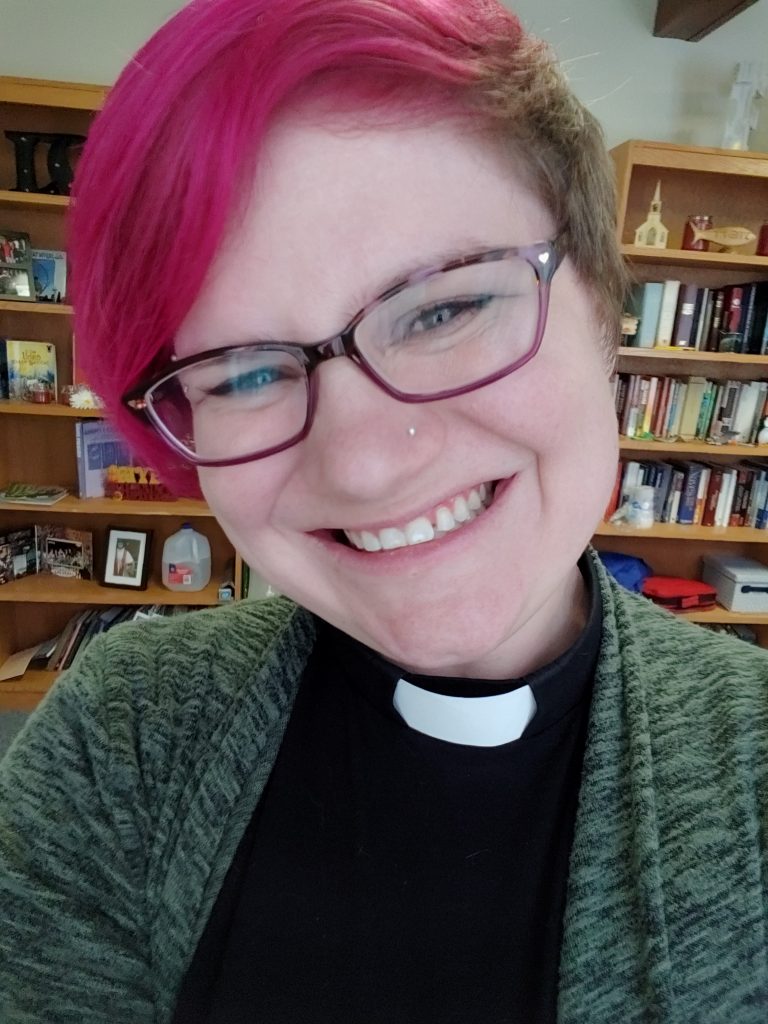Have you ever wondered why we do what we do during worship? What’s up with the passing the peace? Why do we have a community confession? What exactly are we saying when we profess the creed? Maybe you’ve wondered if there’s more to the offering besides collecting gifts for the church. If you’ve been asking, if you’ve been curious, if you’ve been wondering, this is the blog series for you!
Now here’s my super short caveat:
1. These posts are based on the book of Evangelical Lutheran Worship (ELW), on my understanding of our tradition as Lutherans, and the ways scripture has influenced our practices.
2. And worship is super contextual. That means that every context may have different practices for their worship time, different understandings of the whys behind what happens. And that’s okay!
3. Also, even if you worship in the same context I do, your understanding or feeling might be different. And that’s okay too!
So here is part 5 of Ask the Pastor – Worship Stuff: Communion
What is “Communion”?
I’ll be getting into the very Lutheran question of “What does this mean?” down below, but if the question is literally, “what is this thing you do?” hopefully I can shed some light.
During worship, in our context usually near the end of our time together, the pastor (me) says the Words of Institution. We echo Jesus’s words at the Last Supper with his disciples and Paul’s words from Corinthians. We often pray the Lord’s Prayer together.

The pastor gives instructions, and the ushers help direct people towards the altar. In our context, most Sundays all are invited to kneel or stand at the altar. The pastor and communion assistant give the bread and wine, Jesus’s body and blood given for you. At our church, each row receives a blessing before returning to their seats. After all have been communed, including those that for mobility reasons may need to remain seated in the pews, we pray together.
What does this mean?
This is a great question! And I’m so glad you’re asking it. Please don’t hate me for saying: There’s an app for that! I do recommend reading Luther’s Small Catechism. If you prefer not to purchase a copy or download a free app, it’s available in other forms online. I also have multiple copies in my office and I’m happy to share.
I refer to Luther’s Small Catechism because I think it has the best and most easily understandable the Ten Commandments, the Lord’s Prayer, the Apostle’s Creed, and the sacraments like Baptism and Communion (also known as the Sacrament at the altar). Also I had to memorize the Small Catechism in seminary, so I’m particularly attached to it.
So here is a quick summary. In our tradition, we believe that the bread and the wine at communion are the true body and blood of Jesus. Jesus himself told us to eat and drink “often” in remembrance of him. When Jesus says to us, “given for you” and “shed for you for the forgiveness of sin” he means it. When we receive communion we are also receiving forgiveness and grace. For many this is a time of renewal for their bodies, their spirits, and their hearts. It can be a time of repentance and prayer. Luther believed that receiving this sacrament gave strength and resolve for those who were struggling. It can be a source of nourishment and a time of connection with God.
For me as a child it was simply a food that sated my hunger. That changed of course. But the Holy Spirit is up to a lot when we come to the altar with our hands outstretched.
Who can have communion?
Our congregation practices an open table. This means that you do not need to be a member of our church or our denomination to receive communion with us. There has been a lot of ongoing conversations regarding open table in our denomination. Churches practice differing levels of who can receive communion. In Luther’s Small Catechism he states that the only requirement is to “believe the words ‘given for you’ and ‘shed for you for the forgiveness of sin’”.
The Holy Spirit is busy at work in communion, and none of us can know the hearts or minds of others. So, if someone opens their hand and reaches out, we freely give what has been so freely given to us.
Can children commune?
My answer? Yes. But I will say there are caveats. Our denomination in their resource on communion and children remind us of Luther’s words.
“There is no command from our Lord regarding the age at which people should be…first communed.”
And so at our church there are varying ages. We tend to let this be a decision of the children’s guardian(s).
When they say they’re ready
My spouse and I had discussed early on and decided, our daughter would be ready when she asked to receive. So she began receiving the sacrament once she could say “Jesus” and reached out her little hand. Each week as she receives the body of Christ given for her, and her joy and gratitude are palpable.
For other young ones in our context, they actually instituted the conversation. One Sunday, the guardians of a five year old (one of whom is a retired pastor) asked me if their son could receive communion. They were surprised by his understanding and his desire. He began communing that day.
At one of our Small Seeds Saturdays, the kids all asked about when they could be communed as well. It was not our planned curriculum for the day. But we discussed what communion, and I let them know I would share with their parents. The parents agreed, and the following Sunday many of our church’s children received their first communion.
When parents are ready
The same family who asked me to commune their son at five years old also asked me for something like a First Communion class for their nephew. He had began attending with them regularly. They felt that because of family connections it would be a great way for him to connect with the sacrament. We had a Wednesday evening special Small Seeds event for kiddos to come and learn more about the sacrament. All of the children who had began communing several months earlier attended. They decorated their chalices and shared what it’s been like for them receiving communion. That next Sunday they gleefully lifted their special cups at the altar.
Is it too much?
In our church, we tend to have communion every week. The exception being if there are five Sundays in a month or special weekday services. On fifth Sundays we have a special service led by the members of our church. That is not always the case for all churches in and out of our tradition.
For us, communion is an important part of our weekly worship together. Many of our members have different reasons why this time at the altar is important to them. For me personally, I can’t get enough.
This post has been filled with a LOT of information! I hope it’s helpful in answering some of your curiosities about communion in worship. What about communion is meaningful for you? Do you have certain traditions that are special? What are ways the Holy Spirit has worked in your heart at the altar?

Leave a Reply